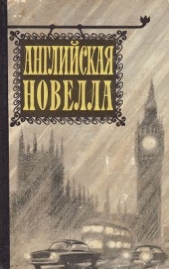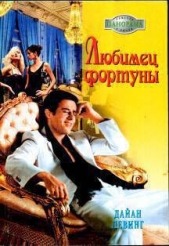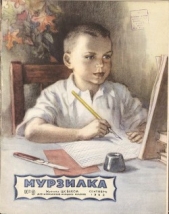Саранча. Колдовство не продаётся

Саранча. Колдовство не продаётся читать книгу онлайн
Два рассказа известной писательницы, лауреата Нобелевской премии по литературе Дорис Лессинг об англичанах в Африке — "Саранча" И "Колдовство не продаётся". Вошли в сборник "Английская новелла" (Л., 1961). В качестве бонуса — тексты на языке оригинала ("A Mild Attack of Locusts" и "No Witchcraft for Sale").
Внимание! Книга может содержать контент только для совершеннолетних. Для несовершеннолетних чтение данного контента СТРОГО ЗАПРЕЩЕНО! Если в книге присутствует наличие пропаганды ЛГБТ и другого, запрещенного контента - просьба написать на почту [email protected] для удаления материала
There was no second baby; and one day Gideon said: 'Ah missus, missus, the Lord above sent this one; Little Yellow Head is the most good thing we have in our house. Because of that 'we' Mrs Farquar felt a warm impulse towards her cook; and at the end of the month she raised his wages. He had been with her now for several years; he was one of the few natives who had his wife and children in the compound and never wanted to go home to his kraal, which was some hundreds of miles away. Sometimes a small piccanin who had been born the same time as Teddy, could be seen peering from the edge of the bush, staring in awe at the little white boy with his miraculous fair hair and northern blue eyes. The two little children would gaze at each other with a wide, interested gaze, and once Teddy put out his hand curiously to touch the black child's cheeks and hair.
Gideon, who was watching, shook his head wonderingly, and said: 'Ah, missus, these are both children, and one will grow up to be a Baas, and one will be a servant'; and Mrs Farquar smiled and said sadly, 'Yes, Gideon, I was thinking the same. She sighed. 'It is God's will, said Gideon, who was a mission boy. The Farquars were very religious people; and this shared feeling about God bound servant and masters even closer together.
Teddy was about six years old when he was given a scooter, and discovered the intoxications of speed. All day he would fly around the homestead, in and out of flowerbeds, scattering squawking chickens and irritated dogs, finishing with a wide dizzying arc into the kitchen door. There he would cry: 'Gideon, look at me! And Gideon would laugh and say: 'Very clever, Little Yellow Head. Gideon's youngest son, who was now a herdsboy, came especially up from the compound to see the scooter. He was afraid to come near it, but Teddy showed off in front of him. 'Piccanin, shouted Teddy, 'get out of my way! And he raced in circles around the black child until he was frightened, and fled back to the bush.
'Why did you frighten him? asked Gideon, gravely reproachful.
Teddy said defiantly: 'He's only a black boy, and laughed. Then, when Gideon turned away from him without speaking, his face fell. Very soon he slipped into the house and found an orange and brought it to Gideon, saying: 'This is for you. He could not bring himself to say he was sorry; but he could not bear to lose Gideon's affection either. Gideon took the orange unwillingly and sighed. 'Soon you will be going away to school, Little Yellow Head, he said wonderingly, 'and then you will be grown up. He shook his head gently and said, 'And that is how our lives go. He seemed to be putting a distance between himself and Teddy, not because of resentment, but in the way a person accepts something inevitable. The baby had lain in his arms and smiled up into his face: the tiny boy had swung from his shoulders, had played with him by the hour. Now Gideon would not let his flesh touch the flesh of the white child. He was kind, but there was a grave formality in his voice that made Teddy pout and sulk away. Also, it made him into a man: with Gideon he was polite, and carried himself formally, and if he came into the kitchen to ask for something, it was in the way a white man uses towards a servant, expecting to be obeyed.
But on the day that Teddy came staggering into the kitchen with his fists to his eyes, shrieking with pain, Gideon dropped the pot full of hot soup that he was holding, rushed to the child; and forced aside his fingers. 'A snake! he exclaimed. Teddy had been on his scooter, and had come to a rest with his foot on the side of a big tub of plants. A tree-snake, hanging by its tail from the roof, had spat full into his eyes. Mrs Farquar came running when she heard the commotion. 'He'll go blind, she sobbed, holding Teddy close against her. 'Gideon, he'll go blind! Already the eyes, with perhaps half an hour's sight left in them, were swollen up to the size of fists: Teddy's small white face was distorted by great purple oozing protuberances. Gideon said: 'Wait a minute, missus, I'll get some medicine. He ran off into the bush.
Mrs Farquar lifted the child into the house and bathed his eyes with permanganate. She had scarcely heard Gideon's words; but when she saw that her remedies had no effect at all, and remembered how she had seen natives with no sight in their eyes, because of the spitting of a snake, she began to look for the return of her cook, remembering what she had heard of the efficacy of native herbs. She stood by the window, holding the terrified, sobbing little boy in her arms, and peered helplessly into the bush. It was not more than a few minutes before she saw Gideon come bounding back, and in his hand he held a plant.
'Do not be afraid, missus, said Gideon, 'this will cure Little Yellow Head's eyes. He stripped the leaves from the plant, leaving a small white fleshy root. Without even washing it, he put the root in his mouth, chewed it vigorously, then held the spittle there while he took the child forcibly from Mrs Farquar. He gripped Teddy down between his knees, and pressed the balls of his thumbs into the swollen eyes, so that the child screamed and Mrs Farquar cried out in protest: 'Gideon, Gideon! But Gideon took no notice. He knelt over the writhing child, pushing back the puffy lids till chinks of eyeball showed, and then he spat hard, again and again, into first one eye, and then the other. He finally lifted Teddy gently into his mother's arms, and said: 'His eyes will get better. But Mrs Farquar was weeping with terror, and she could hardly thank him: it was impossible to believe that Teddy could keep his sight. In a couple of hours the swellings were gone; the eyes were inflamed and tender but Teddy could see. Mr and Mrs Farquar went to Gideon in the kitchen and thanked him over and over again. They felt helpless because of their gratitude: it seemed they could do nothing to express it. They gave Gideon presents for his wife and children, and a big increase in wages, but these things could not pay for Teddy's now completely cured eyes. Mrs Farquar said: 'Gideon, God chose you as an instrument for His goodness, and Gideon said: 'Yes, missus, God is very good.
Now, when such a thing happens on a farm, it cannot be long before everyone hears of it. Mr and Mrs Farquar told their neighbours and the story was discussed from one end of the district to the other. The bush is full of secrets. No one can live in Africa, or at least on the veld, without learning very soon that there is an ancient wisdom of leaf and soil and season — and, too, perhaps most important of all, of the darker tracts of the human mind — which is the black man's heritage. Up and down the district people were telling anecdotes, reminding each other of things that had happened to them.
'But I saw it myself, I tell you. It was a puff-adder bite. The kaffir's arm was swollen to the elbow, like a great shiny black bladder. He was groggy after half a minute. He was dying. Then suddenly a kaffir walked out of the bush with his hands full of green stuff. He smeared something on the place, and next day my boy was back at work, and all you could see was two small punctures in the skin.
This was the kind of tale they told. And, as always, with a certain amount of exasperation, because while all of them knew that in the bush of Africa are waiting valuable drugs locked in bark, in simple-looking leaves, in roots, it was impossible to ever get the truth about them from the natives themselves.
The story eventually reached town; and perhaps it was at a sundowner party, or some such function, that a doctor, who happened to be there, challenged it. 'Nonsense, he said. 'These things get exaggerated in the telling. We are always checking up on this kind of story, and we draw a blank every time.
Anyway, one morning there arrived a strange car at the homestead, and out stepped one of the workers from the laboratory in town, with cases full of test-tubes and chemicals.

























